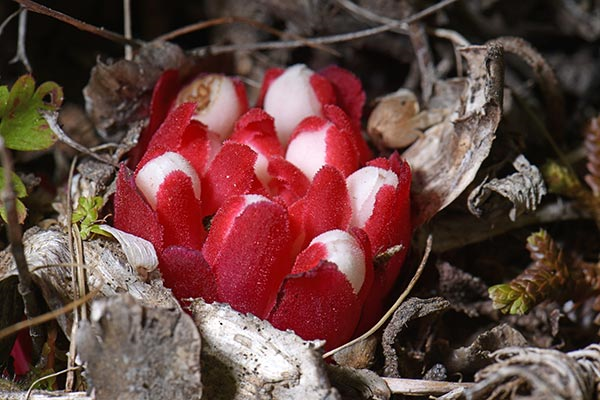Not too hot to handle: Nutrient-rich cayenne pepper can boost heart health and improve digestion
12/09/2019 / By Zoey Sky

Adding cayenne pepper to any savory dish gives it an amazing kick. But did you know that cayenne pepper isn’t just a spicy ingredient? This superfood also offers several benefits, such as improving blood circulation and boosting your heart health.
Cayenne pepper’s health benefits
Cayenne pepper contains essential vitamins and minerals such as:
Dr. Richard Schulze explains that cayenne pepper helps clean your blood and lets hormonal signals easily make their way through your system. This results in an improved immune response.
The spicy pepper is also a good source of beneficial phytonutrients that help address various conditions and ailments. Cayenne pepper possesses anti-inflammatory, antifungal and antimicrobial properties.
The American Nutrition Association (ANA) reports that cayenne pepper stimulates digestion and promotes waste elimination. Additionally, cayenne pepper stimulates your liver, which then makes nutrients available to the body and helps eliminate toxins.
Cayenne pepper is an “instant blood flow stimulant.” This means it helps improve blood circulation, allowing for the efficient delivery of nutrients to cells throughout your body. (Related: Prepper secret: Cayenne pepper offers a natural way to improve blood circulation in your feet.)
While cayenne pepper won’t magically make you lose weight, research suggests that it can help boost your metabolism and calorie burning. This is thanks to cayenne pepper’s capsaicin content. This phytochemical increases energy expenditure, boosts satiety (feeling of fullness) and decreases your appetite, which then helps you lose weight.
Take note that to effectively lose weight using cayenne pepper, you still need to follow a balanced diet and exercise regularly.
Adding cayenne pepper to your diet
If you don’t like spicy food, you can boost your cayenne pepper intake through supplementation. Those who don’t mind a bit of heat can purchase organic cayenne pepper powder and mix it into a glass of water or another beverage to make a spicy health drink.
You can incorporate cayenne pepper to your diet by adding a pinch of cayenne pepper spice to marinades or scrambled eggs. Another option is to add sliced peppers to salads or sandwiches.
If you’re not used to consuming cayenne pepper, the ANA recommends starting with a quarter or half a teaspoon to get yourself used to the spiciness. Gradually increase the dose to a teaspoonful three times a day.
Detailed below are dosage suggestions from herbalist Rosalee De La Foret:
- Cayenne pepper capsules – Two to four grams per day.
- Cayenne tea – One teaspoon of cayenne powder per cup of water.
- Cayenne tincture – Five to 15 drops.
Precautions when using cayenne pepper
Adding too much cayenne pepper to your food may irritate your mouth, resulting in a spicy, inflamed feeling or an upset stomach.
People at risk for heartburn must consult a physician to determine if it is safe to add cayenne pepper to their diet. This is important because cayenne pepper may irritate the lining of your stomach and intestines.
When handling any form of cayenne pepper, always wash your hands thoroughly. Cayenne pepper can remain infused in your hands for several hours, even after washing them more than once. Avoid touching your eyes or open wounds to avoid irritation.
Cayenne pepper is available in different forms, such as powders, supplements or fresh peppers. Test your tolerance for spicy foods and drinks, then experiment with cayenne pepper to boost your digestion and heart health.
Sources include:
Tagged Under: capsaicin, cayenne pepper, digestion, food cures, food is medicine, healing food, heart function, heart health, Herbs, metabolism, natural cures, natural health, natural medicine, Naturopathy, phytonutrients, prevention, supplements
RECENT NEWS & ARTICLES
COPYRIGHT © 2017 NATURAL CURES NEWS




















